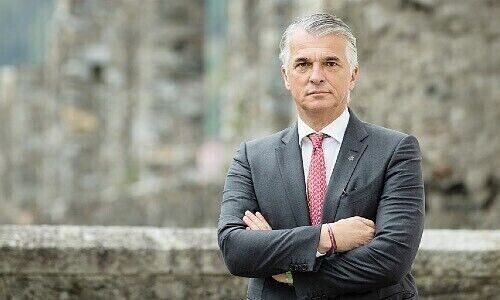Sergio Ermotti Has No Time for Nostalgia
The integration of history-laden Credit Suisse is running like a well-oiled machine in the view of finews.asia, with seemingly nothing gumming up the works set in motion by UBS CEO Sergio Ermotti.
No sooner said than done is the short version of Sergio Ermotti's approach to integrating Credit Suisse.
Ermotti said the pace of the takeover is so fast that he's relying on a well-coordinated team, which is why the UBS CEO surrounds himself almost exclusively with managers already at UBS. Ermotti said the integration of Credit Suisse's domestic business is his base scenario, and that the Credit Suisse brand will be gone by 2025.
The integration of Credit Suisse Switzerland comes with the cost of 3,000 job cuts in Switzerland alone.
More Aggressive Cost Cuts
The milestones are whizzing by at increasing speed. Instead of savings of $8 billion by 2027, UBS set a new goal of cutting costs by $10 billion by 2026. Personnel is the most important expense at banks, and the announced layoffs are unlikely to be the only ones.
Ermotti told a media briefing Thursday there's no time for nostalgia, and a bank with 167 years of history going under seems only a footnote in UBS's plans. One Swiss former Credit Suisse manager said the takeover left him with tears in his eyes, although it wasn't clear if this was because of bonuses being slashed. UBS executives are not reflecting on the past, but looking to the future.
On the Road to $5 Trillion
UBS is the world's second-largest private bank with $3.7 trillion in client assets that are expected to swell to $5 trillion when the integration is done. In Ermotti's view, that's big enough. Major banks shouldn't focus so much on being too big to fail, but rather on being «big enough to survive.» Without significantly larger financial institutions, the Swiss banking center will disappear into insignificance, he warns.
Many people in Switzerland probably see things differently, especially in the Swiss parliament. But while the legislative gears aren't churning yet, UBS has already thrown off the state shackles. It returned the state guarantee and no longer needs liquidity support. The Swiss Financial Market Supervisory Authority (Finma) and not the Competition Commission, decides on whether market concentration in Switzerland is anti-competitive or not.
Share Price Speaks Volumes
Politicians are in an unenviable position if they try to stop UBS. Investors have already taken this into account. Since the beginning of the year, the share price of Switzerland's largest bank climbed by almost a third, leaving historical highs behind. On Thursday, the stock temporarily rose another 5 percent.
Nothing seems to be able to stop Ermotti's machinery at the moment.




























